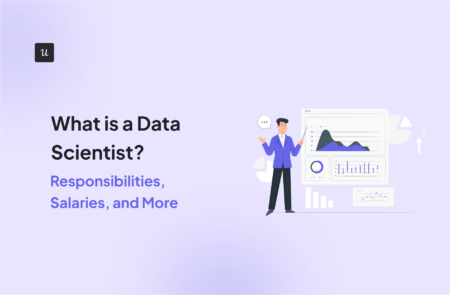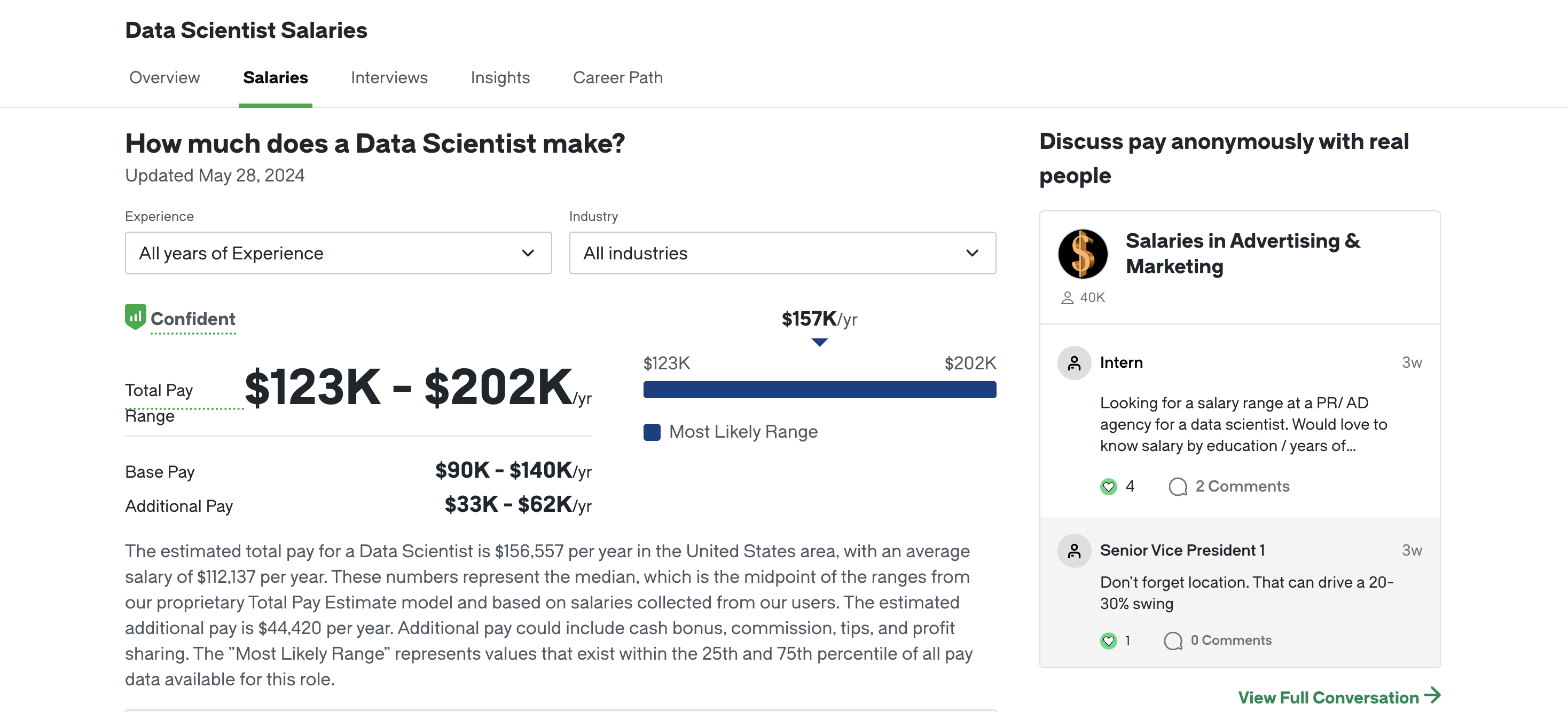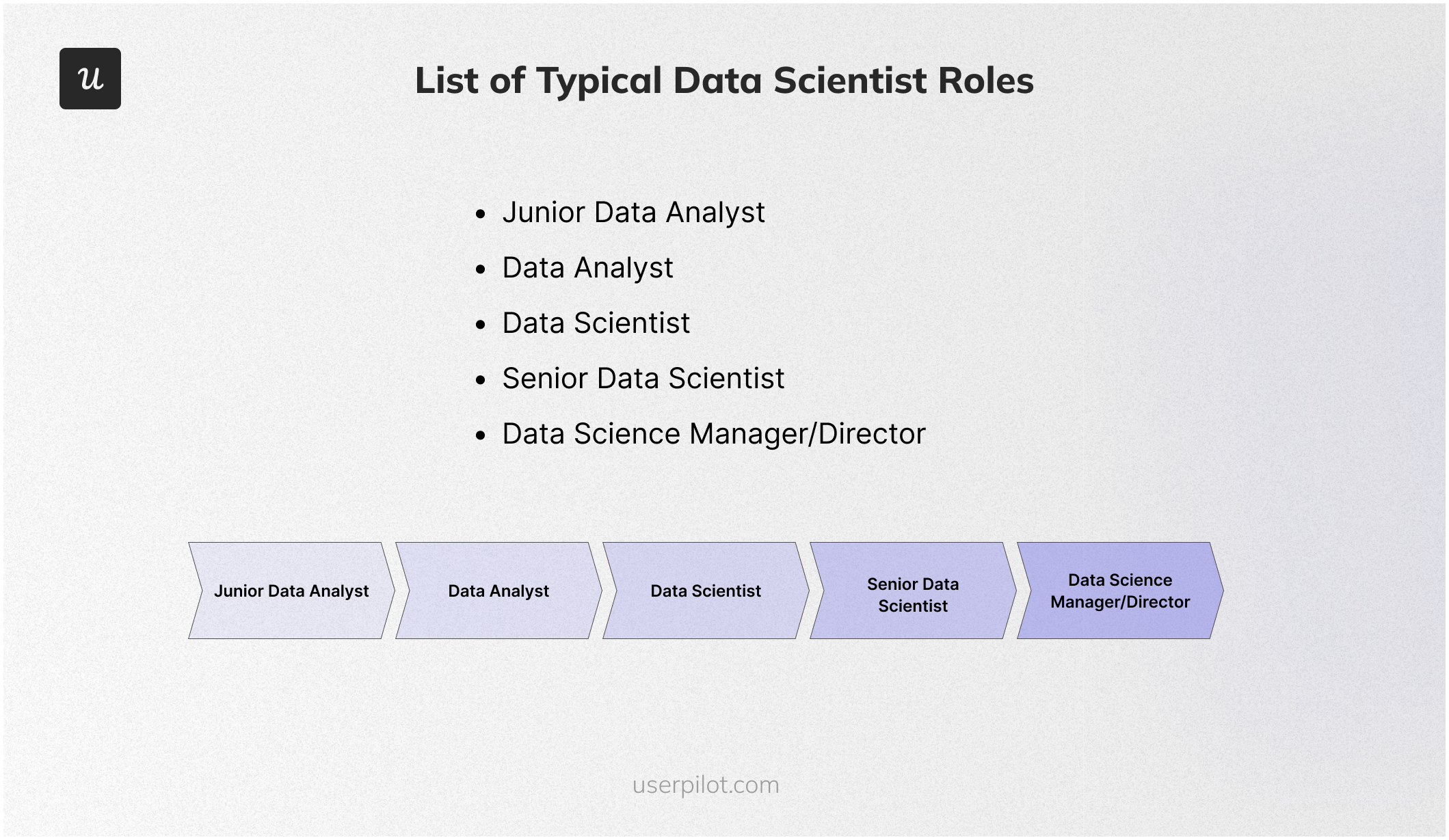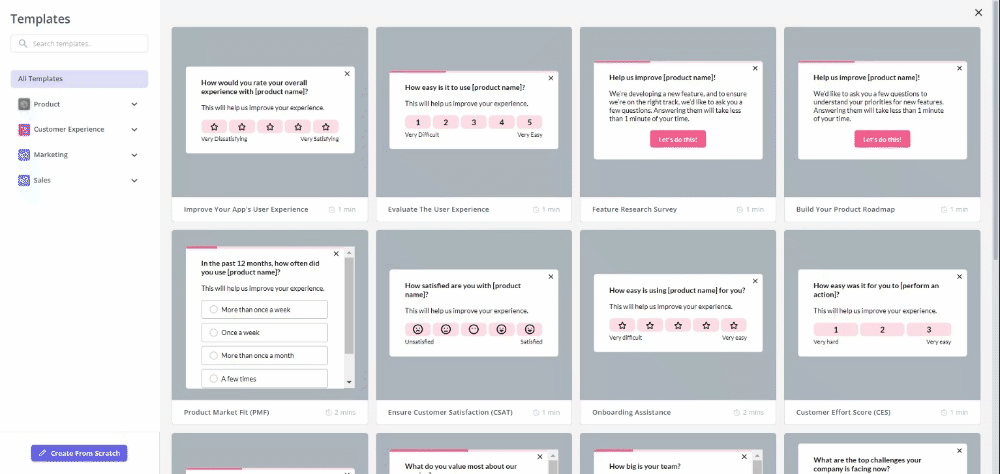
Whether you’re a seasoned professional or new to the field, understanding the nuances of data scientists is essential for success.
In this guide, we’ll delve into the core responsibilities, salary insights, essential skills, and more, providing you with the knowledge and tools you need to excel as a data scientist.
What is a data scientist?
A data scientist is someone who uses their knowledge of statistics, programming, and specific industry expertise to extract meaningful information from data. They are basically detectives who uncover hidden patterns and trends in data, which businesses can then use to make better decisions.
Data scientists are in high demand because more and more organizations are collecting massive amounts of data. This data can come from many sources, such as customer transactions, social media, and sensors. But just having a lot of data isn’t enough. Businesses need data scientists to make sense of it all and turn it into actionable insights.
What does a data scientist do?
Here are some of the things that data scientists typically do:
- Collect and clean data.
- Analyze data to identify patterns and trends.
- Develop models to predict future outcomes.
- Communicate their findings to others.
If you’re interested in a career in data science, you’ll need to be strong in math, statistics, and computer programming. You’ll also need to be able to think critically and communicate complex information to non-technical audiences.
Data scientist job description + template
Here’s a template to help you craft a compelling data scientist job description or simply to better understand the job requirements.
Data scientist’s main responsibilities
The three responsibility pillars of a data scientist encompass Data Acquisition and Engineering, Data Analysis and Modeling, and Communication and Collaboration.
For a better understanding of this role, let’s break down the core responsibilities of a data scientist working in a SaaS company, for example:
1. Data acquisition and engineering:
- Data Extraction: SaaS products generate a ton of user data. Data scientists design and implement methods to extract this data from various sources within the SaaS application (e.g., user activity logs, product usage data). They may use APIs or write scripts to automate this process.
- Data Cleaning and Preprocessing: Raw data often contains errors and inconsistencies. Data scientists clean and prepare the data for analysis by identifying and handling missing values, outliers, and inconsistencies. This is crucial for building reliable models.
- Feature Engineering: Data scientists transform raw data into features that are informative for machine learning models. This may involve creating new variables, combining existing ones, and performing dimensionality reduction techniques.
2. Data analysis and modeling:
- Customer Segmentation: SaaS companies often have diverse customer bases. Data scientists use clustering algorithms to segment customers based on their behavior and characteristics. This helps personalize the user experience and target marketing efforts effectively.
- Churn Prediction: Customer churn is a major concern for SaaS companies. Data scientists build churn prediction models to identify customers at risk of leaving. This allows the company to take proactive steps to retain them (e.g., offering discounts, providing support).
- Recommendation Engines: Many SaaS products recommend content, features, or services to users. Data scientists develop recommendation engines using collaborative filtering or content-based filtering techniques to personalize recommendations and improve user engagement.
3. Communication and collaboration:
- Translating Insights to Action: Data scientists don’t work in isolation. They collaborate with product managers, marketing teams, and other stakeholders to translate their analytical findings into actionable business strategies. This might involve creating reports, dashboards, and presentations to communicate complex insights effectively.
- A/B Testing: Data scientists design and implement A/B tests to measure the impact of changes made to the SaaS product (e.g., new features, pricing models). This helps optimize the product for better user experience and conversion rates.
- Staying Updated: The field of data science is constantly evolving. Data scientists in SaaS need to stay updated on the latest tools, techniques, and industry trends to ensure their models remain relevant and effective.
Data scientist salary

Understanding the salary landscape for data scientists is essential for anyone considering this career path or looking to advance within it. The salary can vary significantly depending on the industry, reflecting the demand and the specialized skills required in different fields.
- All Industries:
- Total Pay Range: $123K – $202K per year
- Base Pay: $90K – $140K per year
- Additional Pay: $33K – $62K per year
For example, in the Information Technology industry, data scientists can expect higher compensation, with total pay ranging from $174,000 to $260,000 per year. This is due to the technical expertise needed to handle complex data systems and algorithms.
In contrast, data scientists in the Media and Communication industry have a total pay range of $133,000 to $201,000 per year. While still lucrative, these roles often emphasize data interpretation and strategic insights tailored to media analytics and audience engagement.
Overall, the average salary for data scientists across all industries is around $156,557 per year. However, these figures can fluctuate based on specific industry requirements and additional pay components like bonuses and profit sharing. By breaking down salaries by industry, we can see the diverse opportunities and potential earnings for data scientists, helping professionals make informed career decisions.
Data scientist career path

Here’s a breakdown of a typical data scientist career path, with information on how to progress and the estimated experience needed for each level:
1. Junior Data Analyst (0-2 years): You’ll need a bachelor’s degree in a relevant field (statistics, computer science, etc.), strong analytical skills, and basic programming experience (Python, R). You can look for internships or entry-level analyst roles.
2. Data Analyst (2-4 years): This position often requires a solid foundation in data analysis methodologies and data manipulation skills. You should deepen your technical skills in programming languages (Python, R) and data analysis tools (SQL, machine learning libraries) or contribute to data science projects alongside senior data scientists.
3. Data Scientist (4-7 years): This is a core data science role requiring strong programming, statistical modeling, and problem-solving skills. At this point, you must master advanced machine learning algorithms and techniques like deep learning. It also matters to specialize in a particular industry or domain (e.g., finance, healthcare) or lead and mentor junior data scientists.
4. Senior Data Scientist (7+ years): This senior-level role demands extensive expertise in data science techniques and the ability to manage complex projects and teams. You can continuously learn about new technologies and trends in data science.
5. Data Science Manager/Director (10+ years): This leadership role requires extensive data science experience combined with strong business management and communication skills. For example, you’ll be in charge of setting the strategic direction for the data science function within an organization. You also take responsibility for overseeing budgets and resources for data science projects.
Best practices for being a great data scientist
To become a great data scientist, here are a few suggestions for you:
- Master the fundamentals: This might seem obvious, but a strong foundation in statistics, probability, linear algebra, and programming languages like Python (especially libraries like NumPy, Pandas, and scikit-learn) is crucial. These skills allow you to understand data, manipulate it effectively, and build robust models.
- No-code tool knowledge: While strong technical skills are important, familiarity with no-code data analysis platforms can be a plus. Tools like Userpilot, Amplitude, and Mixpanel allow even non-programmers to explore and visualize user behavior data. This can help understand user needs and inform data science projects.
- Think business first: Don’t get lost in the algorithms. Understand the business problem you’re trying to solve and translate it into actionable insights. Communicate your findings clearly and concisely to non-technical audiences.
- Embrace continuous learning: Data science is a rapidly evolving field. Stay up-to-date with the latest trends and technologies by attending conferences, reading industry blogs, and participating in online forums.
- Be a team player: Collaboration is key! Great data scientists can work effectively with cross-functional teams – engineers, product managers, and domain experts – to ensure projects have a business impact.
Data scientist FAQs
What does a data scientist do?
Data scientists identify the key questions that need answers and determine where to source the relevant data. They possess a blend of business acumen and analytical expertise, coupled with the skills to extract, clean, and present data effectively.
What is required to be a data scientist?
A bachelor’s degree in a relevant field, such as computer science, statistics, mathematics, or engineering, is typically required for entry-level data scientist positions. When discussing the qualifications for data scientists, it’s worth noting that some companies may prefer candidates with a Master’s or PhD in a related discipline.
Is data scientist a tough job?
The role likely requires a strong foundation in various technical areas and the ability to keep up with evolving technologies based on the skills mentioned. However, the specific difficulty might depend on the industry, company size, and the problems being tackled.
Is it hard to become a data scientist?
There can be a steep learning curve for those entirely new to the field due to the required technical and analytical skills. However, there are certifications, online courses, and data science degrees available to help bridge the knowledge gap.
Overall, data science seems like a demanding but rewarding field that uses data to solve problems and make informed decisions. The difficulty of entering the field depends on your background and how much you’re willing to learn.
Conclusion
We hope this guide has provided you with valuable insights into the roles, responsibilities, and rewards associated with this role.
Looking into tools for data scientists? Userpilot is an all-in-one product platform with engagement features and powerful analytics capabilities. Book a demo to see it in action!







